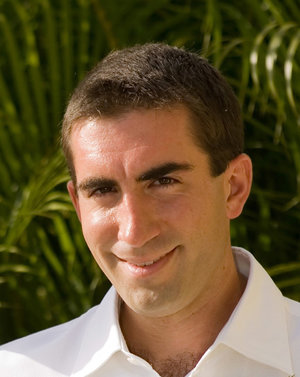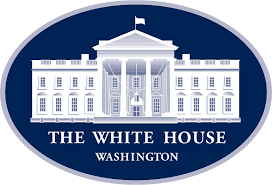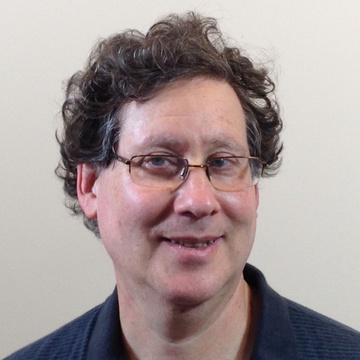Open mHealth
See the following -
A New Meaning for Connected Health at 2016 Symposium (Part 3)
 The previous section of this article paused during a discussion of the accuracy and uses of devices. At a panel on patient generated data, a speaker said that one factor holding back the use of patient data was the lack of sophistication in EHRs. They must be enhanced to preserve the provenance of data: whether it came from a device or from a manual record by the patient, and whether the device was consumer-grade or a well-tested medical device. Doctors invest different levels of trust in different methods of collecting data: devices can provide more objective information than other ways of asking patients for data. A participant in the panel also pointed out that devices are more reliable in the lab than under real-world conditions. Consumers must be educated about the proper use of devices, such as whether to sit down and how to hold their arms when taking their blood pressure...
The previous section of this article paused during a discussion of the accuracy and uses of devices. At a panel on patient generated data, a speaker said that one factor holding back the use of patient data was the lack of sophistication in EHRs. They must be enhanced to preserve the provenance of data: whether it came from a device or from a manual record by the patient, and whether the device was consumer-grade or a well-tested medical device. Doctors invest different levels of trust in different methods of collecting data: devices can provide more objective information than other ways of asking patients for data. A participant in the panel also pointed out that devices are more reliable in the lab than under real-world conditions. Consumers must be educated about the proper use of devices, such as whether to sit down and how to hold their arms when taking their blood pressure...
- Login to post comments
A Primer on the Open Source Movement from a Health Care Perspective
 Open source, in myriad forms, has emerged as a significant development model that drives both innovation and technological dispersion. Ignore it at your peril, as did the major computer companies destroyed or totally remade by Linux and free software, or encyclopedia publishers by Wikipedia, or journalists and marketers by social media. The term "open source" was associated first with free software, but it goes far beyond software now. People around the world use open hardware, demand open government, share open data, and--yes--pursue open health. The field of health, in particular, will be transformed by open source principles in software, in research, in consultations and telemedicine, and in the various forms of data sharing all these processes call for.
Open source, in myriad forms, has emerged as a significant development model that drives both innovation and technological dispersion. Ignore it at your peril, as did the major computer companies destroyed or totally remade by Linux and free software, or encyclopedia publishers by Wikipedia, or journalists and marketers by social media. The term "open source" was associated first with free software, but it goes far beyond software now. People around the world use open hardware, demand open government, share open data, and--yes--pursue open health. The field of health, in particular, will be transformed by open source principles in software, in research, in consultations and telemedicine, and in the various forms of data sharing all these processes call for.
- Login to post comments
CommonHealth Will Enable Android Phone Users to Access and Share their Electronic Health Record Data with Trusted Apps and Partners
 Cornell Tech, UC San Francisco (UCSF), Sage Bionetworks, Open mHealth and The Commons Project are collaborating to develop CommonHealth, an open-source, non-profit public service designed to make it easy and secure for people to collect their electronic health record data and share it with health apps and partners that have demonstrated their trustworthiness. CommonHealth will leverage data interoperability standards, including HL7 FHIR to offer functionality analogous to Apple Health™ to users of Android™ phones.
Cornell Tech, UC San Francisco (UCSF), Sage Bionetworks, Open mHealth and The Commons Project are collaborating to develop CommonHealth, an open-source, non-profit public service designed to make it easy and secure for people to collect their electronic health record data and share it with health apps and partners that have demonstrated their trustworthiness. CommonHealth will leverage data interoperability standards, including HL7 FHIR to offer functionality analogous to Apple Health™ to users of Android™ phones.
- Login to post comments
Cornell Tech Professor Pries Open Medicine
Deborah Estrin, who founded Open mHealth, wants to build apps that capture people's everyday activities and give doctors insight into patient health. Read More »
- Login to post comments
How Can Open Source Projects Support Themselves in Health Care?
 High prices and poor usability hasn't driven the health care industry away from megalithic, proprietary applications. What may win the industry over to open source (in addition to the hope of fixing those two problems) is its promises of easy customization, infinite flexibility, extensibility, and seamless data exchange. As we will see, open platforms also permit organizations to collaborate on shared goals, which appeals to many participants. But if open source projects can't charge hundreds of thousands of dollars for installation as their commercial competitors do, how will they pay their developers and hold together as projects? This article compares three major organizations in the open source health care space: the tranSMART Foundation, Open Health Tools (OHT), and Open mHealth. Each has taken a different path to the universal goal of stability.
High prices and poor usability hasn't driven the health care industry away from megalithic, proprietary applications. What may win the industry over to open source (in addition to the hope of fixing those two problems) is its promises of easy customization, infinite flexibility, extensibility, and seamless data exchange. As we will see, open platforms also permit organizations to collaborate on shared goals, which appeals to many participants. But if open source projects can't charge hundreds of thousands of dollars for installation as their commercial competitors do, how will they pay their developers and hold together as projects? This article compares three major organizations in the open source health care space: the tranSMART Foundation, Open Health Tools (OHT), and Open mHealth. Each has taken a different path to the universal goal of stability.
- Login to post comments
Interoperability Headaches in Fitness and Medical Devices
The promise of device data pervades the health care field. It’s
intrinsic to patient-centered medical homes, it beckons clinicians who are enamored with hopes for patient engagement, and it causes data analysts in health care to salivate. This promise also drives the data aggregation services offered by Validic and just recently, the Shimmer integration tool from Open mHealth. But according to David Haddad, Executive Director and Co-Founder of Open mHealth, devices resist attempts to yield up their data to programmers and automated tools.
- Login to post comments
Kaiser Permanente Launches Open Health API With Facility Info, Self-Tracking Data Coming Soon
Integrated health system Kaiser Permanente is launching an open API, called Interchange, that will enable developers to use publicly available information from Kaiser Permanente in their own apps... Read More »
- Login to post comments
Kaiser Permanente, Qualcomm Life, WellTok And More Support Open mHealth To Catalyze An Open Mobile Health Ecosystem
With 6 billion phones in people’s pockets worldwide, and over 20,000 health apps now in the marketplace, tracking everything from fitness to stress to sleep is becoming a part of modern life. But without an easy way to integrate these applications or their data, we have yet to unlock the full potential of mobile health (mHealth). Read More »
- Login to post comments
Mobile Devices Linked To Better Health
More than 6 billion people worldwide (including almost 400 million in the United States) now carry mobile phones, which could be used to enhance mental and physical health, a Cornell researcher proposed. Read More »
- Login to post comments
Obama Administration Announces Key Actions to Accelerate Precision Medicine Initiative
 A year ago the President announced the launch of the Precision Medicine Initiative to accelerate a new era of medicine that delivers the right treatment at the right time to the right person, taking into account individuals’ health history, genes, environments, and lifestyles. Precision medicine is already transforming the way diseases like cancer and mental health conditions are treated. Molecular testing for cancer patients lets physicians and patients select treatments that improve chances of survival and reduce adverse effects...
A year ago the President announced the launch of the Precision Medicine Initiative to accelerate a new era of medicine that delivers the right treatment at the right time to the right person, taking into account individuals’ health history, genes, environments, and lifestyles. Precision medicine is already transforming the way diseases like cancer and mental health conditions are treated. Molecular testing for cancer patients lets physicians and patients select treatments that improve chances of survival and reduce adverse effects...
- Login to post comments
Open mHealth Popular Standard (Part 1)

If standards have not been universally adopted in the health care field, and are oftenimplemented incorrectly when adopted, the reason may simply be that good standards are hard to design. A recent study found that mobile health app developers would like to share data, but “Less progress has been made in enabling apps to connect and communicate with provider healthcare systems–a fundamental requirement for mHealth to realize its full value in healthcare management.”Open mHealth faced this challenge when they decided to provide a schema to represent the health data that app developers, research teams, and other individuals want to plug into useful applications. This article is about how they mined the health community for good design decisions and decided what necessary trade-offs to make.
- Login to post comments
Open mHealth Popular Standard (Part 2)
 Normally, one wants to break information down into chunks as small as possible. Bydoing this, you allow data holders to minimize the amount of data they need to send data users, and data users are free to scrutinize individual items or combine them any way they want. But some values in health need to be chunked together. When someone requests blood pressure, both the systolic and diastolic measures should be sent. The time zone should go with the time. On the other hand, mHealth doesn’t need combinations of information that are common in medical settings. For instance, a dose may be interesting to know, but you don’t need the prescribing doctor, when the prescription was written, etc. On the other hand, some app developers have asked the prescription to include the number of refills remaining, so the app can issue reminders.
Normally, one wants to break information down into chunks as small as possible. Bydoing this, you allow data holders to minimize the amount of data they need to send data users, and data users are free to scrutinize individual items or combine them any way they want. But some values in health need to be chunked together. When someone requests blood pressure, both the systolic and diastolic measures should be sent. The time zone should go with the time. On the other hand, mHealth doesn’t need combinations of information that are common in medical settings. For instance, a dose may be interesting to know, but you don’t need the prescribing doctor, when the prescription was written, etc. On the other hand, some app developers have asked the prescription to include the number of refills remaining, so the app can issue reminders.
- Login to post comments
Open mHealth Popular Standard (Part 3)

The first section of this article introduced the common schemas for mobile healthdesigned by Open mHealth, and the second section covered the first two design principles driving their schemas. We’ll finish off the design principles in this section. Here, the ideal is to get accurate measurements to the precision needed by users and researchers. But many devices are known to give fuzzy results, or results that are internally consistent but out of line with absolute measurements. The goal adopted by Open mHealth is to firm up the things that are simple to get right and also critical to accuracy, such as units of measurement discussed earlier. They also require care in reporting the time interval that a measurement covers: day, week, month. There’s no excuse if you add up the walks recorded for the day and the sum doesn’t match the total steps that the device reports for that day...
- Login to post comments
Usability of Health IT Tools
 A recent article of mine celebrated a clever educational service offered on the Web by theUS Department of Health and Human Services. I ended with a list of three lessons for the health care field regarding usability of health IT Tools, which deserve further explanation. Communications can be improved by using the advanced features provided by the Web and mobile devices. In the HHS case, developers went to great lengths to provide a comfortable, pleasant experience to anyone who viewed their content, even if the viewers were visiting a different web site and the HHS content was merely embedded there.
A recent article of mine celebrated a clever educational service offered on the Web by theUS Department of Health and Human Services. I ended with a list of three lessons for the health care field regarding usability of health IT Tools, which deserve further explanation. Communications can be improved by using the advanced features provided by the Web and mobile devices. In the HHS case, developers went to great lengths to provide a comfortable, pleasant experience to anyone who viewed their content, even if the viewers were visiting a different web site and the HHS content was merely embedded there.
- Login to post comments